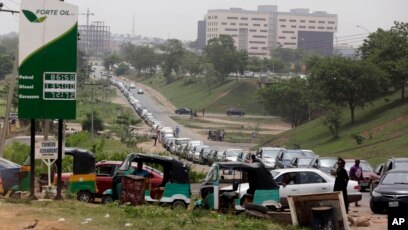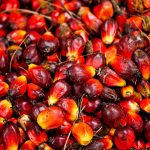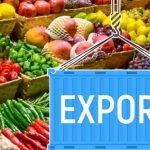Motorists and irrigation farmers in Kano and neighboring Jigawa State are facing significant losses due to weeks of fuel scarcity, resulting in inflated prices at filling stations throughout both states. Premium Times reporters witnessed residents struggling to obtain fuel for their daily needs between Monday and Friday.
With petrol prices soaring above N1,000 per litre at some stations, motorists endure long queues at the few stations with fuel, particularly those operated by the Nigerian National Petroleum Company Ltd (NNPCL). At NNPCL outlets selling petrol for N620 per litre, motorists and irrigation farmers expressed frustration after spending days in line.
In Kano, the commercial epicenter of Northern Nigeria, the scarcity has severely disrupted socio-economic activities. On Thursday, Zaria road, a major route into the state, was blocked by vehicles queued at an NNPCL outlet along the route. Premium Times noted deserted township roads in the metropolis as people abandoned their vehicles due to fuel scarcity and the exorbitant prices set by filling stations.
Residents, including students from various educational institutions, resorted to walking due to the scarcity of commercial tricycles and other vehicles, as the few available were charging inflated fares.
Black market vendors were peddling a four-litre gallon of petrol for prices exceeding N6,000 on Thursday, contingent upon demand and location.
Umar Ibrahim, a motorist residing in Fagge quarters, recounted spending an hour at a filling station on Abdullahi Bayero Road attempting to purchase petrol at N700 per litre on Wednesday, to no avail. He expressed frustration, noting that the station allegedly sold the product above the official price to black marketeers during the night.
Another Fagge quarters resident, Shehu Umar, reported on Friday morning that petrol was being sold at N1,070 per litre at ABY filling station on IBB way in Kano. Due to the exorbitant prices, there was minimal queue at the station, with only a handful of buyers making purchases.
Another resident, who identified himself only as Scorer, urged the government to penalize filling stations charging exorbitant prices, labeling them as unscrupulous individuals.
“The federal government should penalize those unscrupulous individuals selling petrol above N1,000 because they are the ones hampering socio-economic activities in the state,” Scorer emphasized.
In neighboring Jigawa State, Auwalu Sani recounted spending two days in a queue at the NNPC mega station in Dutse, accusing station managers of favoring certain buyers.
“At Awajil and Kankani, petrol stations are selling fuel above N1,000 per litre because NNPC outlets are scarce, and they are selectively selling it,” Mr. Sani noted.
Ahmad Illalah, Secretary of Partnership for Inclusion of Local Governance, highlighted how the scarcity was impacting rice farming in Jigawa, emphasizing that farmers were suffering significant losses due to the high cost and scarcity of petrol, reaching as high as N1,500 per litre in some areas. He urged urgent government intervention to assist farmers facing this critical situation.
Ahmadu Rufai, a farmer, shared his ordeal of having to transport his water pumping machine to the filling station just to obtain fuel, delaying the irrigation of his rice farm by a day.
“I should be irrigating my farm twice a week, but due to the current scarcity, I have to leave a portion of the farm unattended because of the challenges in obtaining sufficient fuel,” Mr. Rufai explained.
The water pumps utilized by farmers like Mr. Rufai rely on petrol for power.
Gana Girigire, Chairman of the Independent Petroleum Marketers Association of Nigeria (IPMAN) in Kano, attributed the petrol scarcity to the Nigerian National Petroleum Corporation Limited (NNPCL) during an interview with local radio stations in Kano.
He clarified that IPMAN had dispatched over 100 trucks to various locations to procure fuel, but the commodity was not available.
The NNPCL, serving as Nigeria’s sole importer of petrol, attributed the scarcity to logistical hurdles but assured that these issues have been addressed, promising that the scarcity would soon be resolved.





